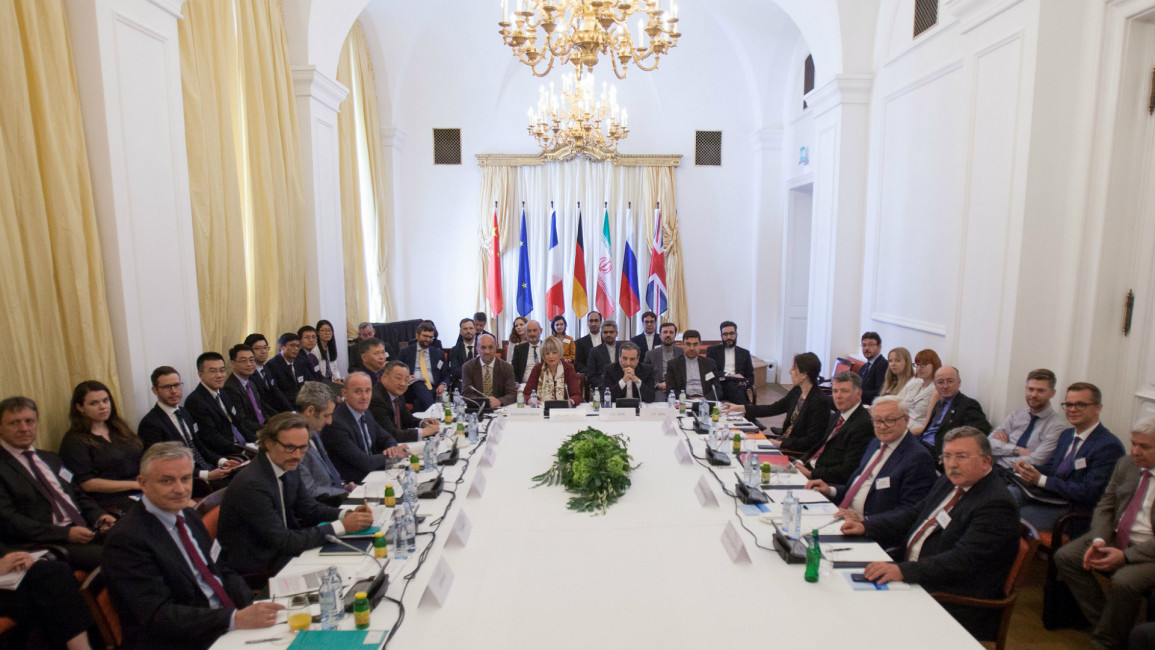Iran and US to hold indirect talks in Vienna to discuss 'revival' of nuclear deal
"The US and Iran have gone from both sides in an intense disagreement on which side should take the first step, to a position where talks in Vienna offer a chance to lay out a tentative roadmap with all the steps needed to get both countries back into mutual compliance with the nuclear deal,” Yar Batman, CEO of the Bourse & Bazaar Foundation, a think tank focused on Iran's economy, told The New Arab.
“Getting that roadmap fine-tuned will require direct talks between the two sides. But for now, knowing that the 'first step' is a conversation about the 'full roadmap' has reassured leaders in both Washington and Tehran that the intention is to see this process through to the end."
The announcement of this first step of indirect talks between the two countries comes at a critical time. It follows four years of tension with the previous administration. It also follows a significant increase by Iran of its uranium enrichment.
|
|
Possibly just as important, and on the minds of both parties as they take these initial steps, are the upcoming Iranian elections in just two months.
In June, the Iranians will decide between their current moderate administration and their more hardline competition, who have gained in popularity since the nuclear deal (the Joint Comprehensive Plan of Action) was signed six years ago. The hardliners are poised to win and they do not support the deal.
“As we approach the election in June, there’s a divisive landscape in Iran,” said Sins Toossi, a senior researcher and analyst at the National Iranian American Council, a nonprofit group.
“Biden has to get back to the deal as quickly as possible.”
Read more: Why Turkey wants Biden to salvage the Iran nuclear deal
In addition to Iran’s upcoming elections, President Joe Biden’s administration will have to contend with US domestic political pressure. However, any pressure will likely not be sufficient to obstruct a deal, as the Democrats— most of whom support the deal — hold a slight majority in the senate, and overturning it would require a two-thirds majority vote. Moreover, Biden’s negotiations team is led by veterans from his time as vice president under Barack Obama.
“There will be a lot of forces in the US and Iran putting up obstacles,” said Toossi, “But this can be done.”
Brooke Anderson is The New Arab's correspondent in Washington D.C., covering US and international politics, business and culture.
Follow us on Facebook, Twitter and Instagram to stay connected



